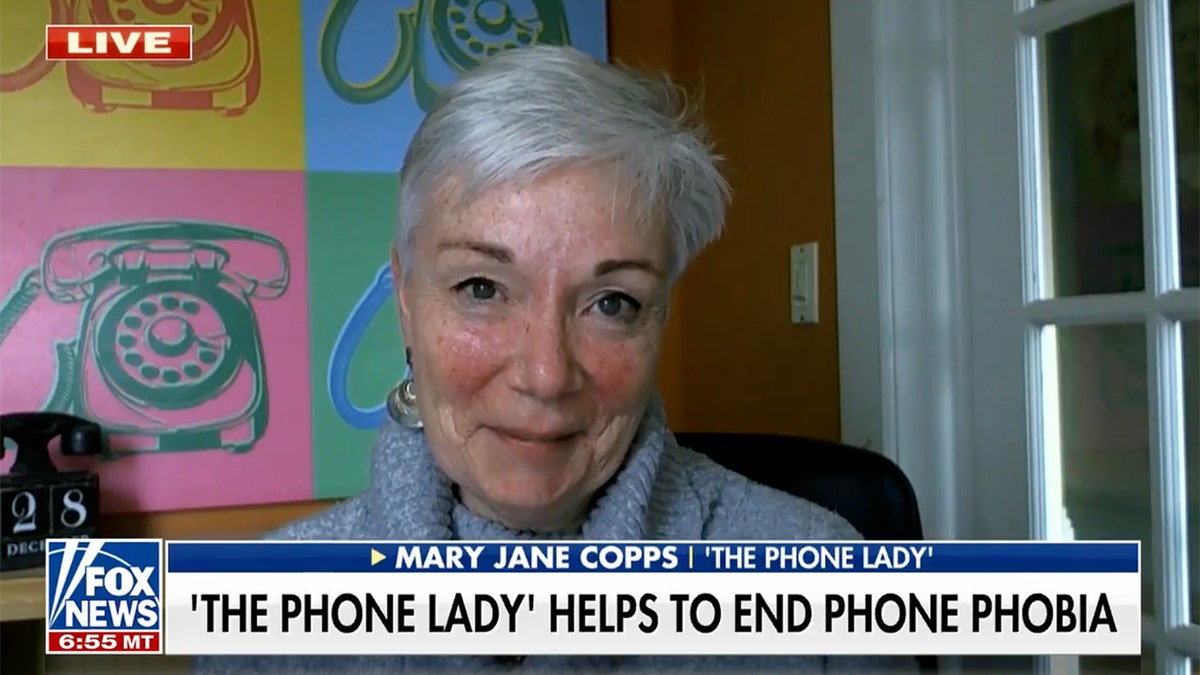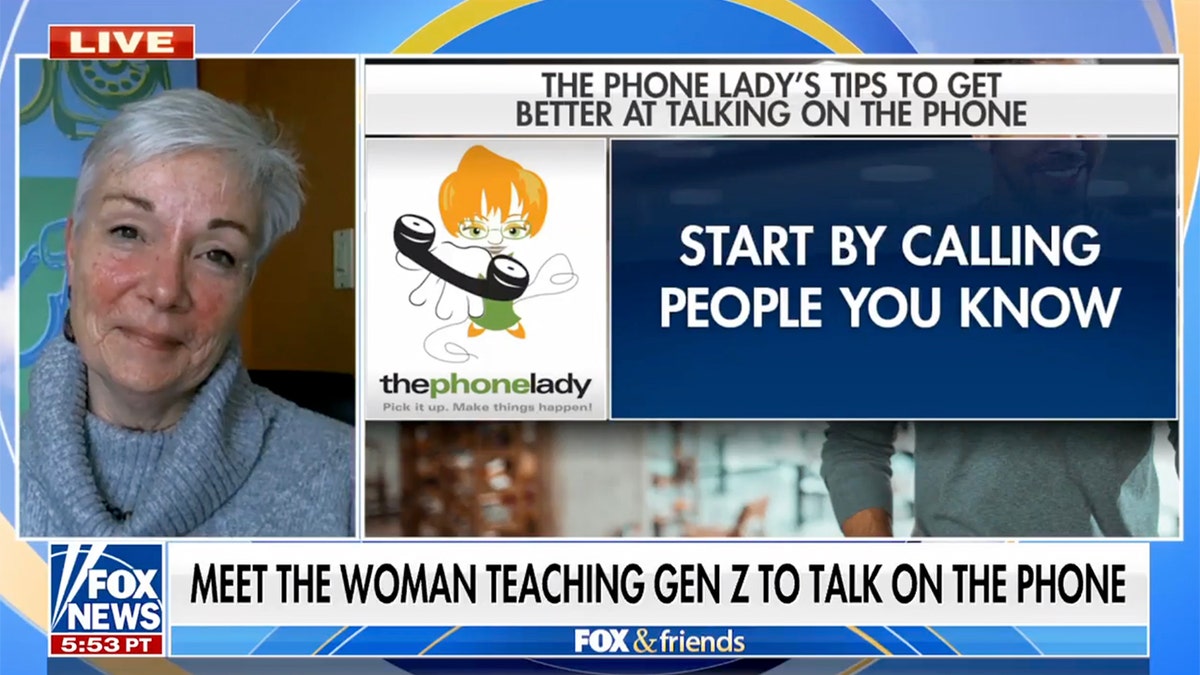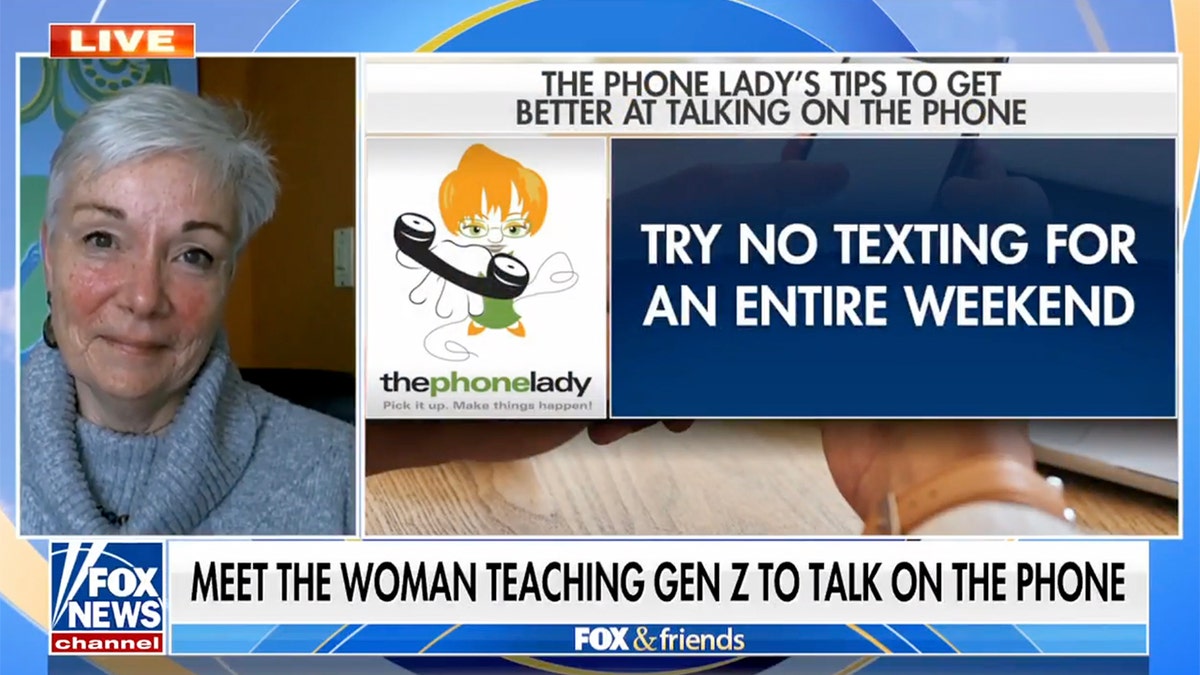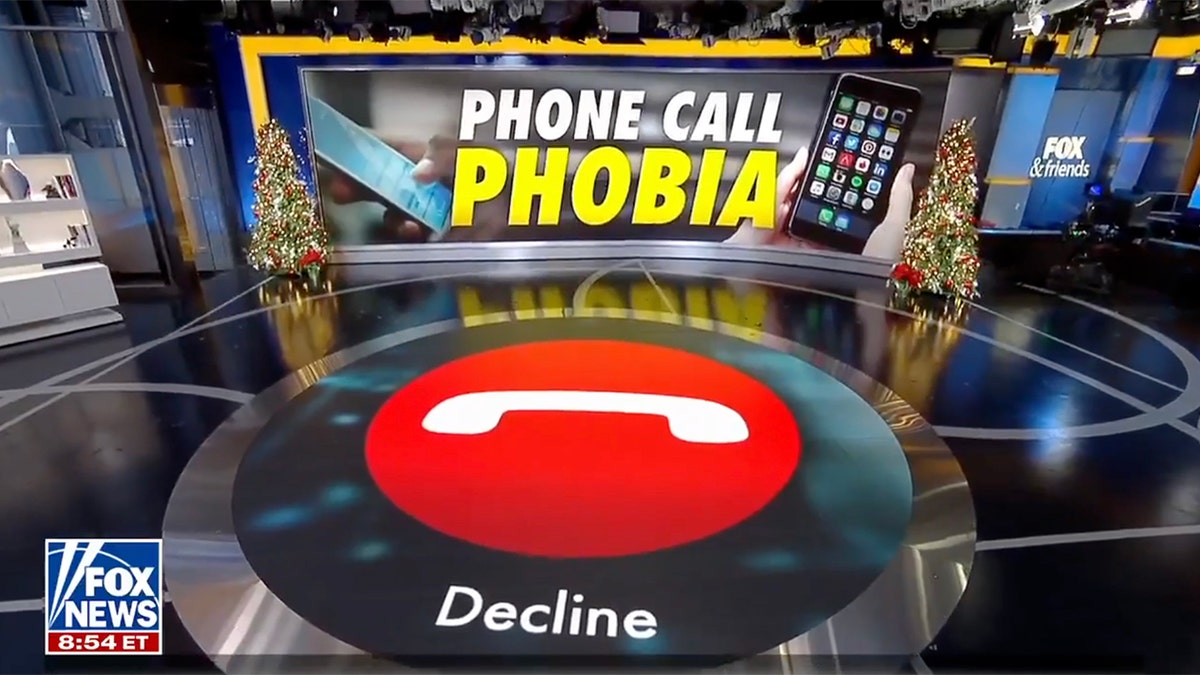'The Phone Lady' teaches young adults how to talk on the phone
'The Phone Lady' Mary Jane Copps joined 'Fox & Friends' to discuss how she started her business and the importance of the skill in the workplace.
A communications expert is offering tips and strategies to address a common fear today, especially among younger people: talking on the telephone.
Appearing on "Fox & Friends" on Wednesday morning, Mary Jane Copps, owner of the company The Phone Lady, explained that while her business has been operating for 17 years, she "certainly didn’t start out working to solve phone-phobia."
But about eight or nine years ago, Copps, who is based in Canada — in Halifax, Nova Scotia — said her business model shifted.
COW-CUDDLING AS STRESS RELIEF: IT'S ‘NATURALLY RELAXING’ SAYS AN ANIMAL SANCTUARY
"It became evident that that is what the client base wanted," she said.
"I would get calls from CEOs and so on asking me to help them with their staff, who were hesitating and anxiety-ridden to make phone calls."

Phone phobia is especially common in startups with younger employees, said Copps on Wednesday. (Fox News)
The "phone phobia" was especially prevalent at startups, she said, "with young founders who needed to speak to their prospective markets on the phone."
Practice makes perfect
Copps said her first tip on improving phone conversations is for people to start by calling people they know to practice phone conversations.
These practice conversations, she said, can be very helpful in building skills ahead of important phone conversations, such as job interviews.
US TASK FORCE RECOMMENDS ANXIETY AND DEPRESSION SCREENINGS FOR ADULTS
"One of the things I do with lots of not-for-profits and colleges is, I will go in and work with a classroom, preparing them to talk on the phone to potential employers," said Copps.
Phone skills, as well as comfort in using a phone, are very much needed in today's world, she said.

One way to gain comfort on the phone is to call people who are familiar, says Mary Jane Copps, otherwise known as "The Phone Lady." (Fox News)
"There are lots of careers, jobs out there that still involve talking on the phone, being proactive on the phone, making outbound calls to clients," said Copps.
"There's certainly a large segment of the business world that relies on customer service on the phone," she added.
COVID-RELATED STRESS WEIGHS HEAVILY ON GEN Z
"All of those companies are looking for help in terms of their teams and helping them communicate more effectively on the phone."
Forget texting for a weekend
Another tip from Copps to her clients: They should refrain from texting others for a full weekend.

Texting can prove detrimental to improving one's comfort ion talking on the phone, said Cobbs on "Fox and Friends." (Fox News)
"One way was definitely to get them to stop texting for 48 hours," she said.
While texting is a form of communication, it is different, she said, from having a conversation in real time — as people can edit and pre-write what they're going to say in the text.
Hone the art of ‘riffing’
Talking, either by phone or in person, requires "riffing" even on planned topics — a skill that needs to be honed, Cobbs also said.

Talking on the phone requires "riffing," said Copps, which is a skill that can be developed over time. (Fox News)
The fear of talking on the phone or making phone calls is not a new or uncommon phenomenon, nor is it limited to any particular age group.
The book "The Psychology of Sales Call Reluctance" by George W. Dudley and Shannon L. Goodson was first published in 1986, years before smartphones were invented and became popular.
In a recent poll, 61% of millennial office workers said they avoided phone calls entirely.
In 2019, a survey of office workers in the United Kingdom found that nearly two-thirds of the 500 office workers polled had some form of "phone phobia."
The telephone answering service Face for Business conducted the survey.
The poll found that 62% of office-based employees said they were anxious before answering the phone.
CLICK HERE TO GET THE FOX NEWS APP
And although 76% of millennials surveyed said they were anxious about answering the phone, a significant number of older colleagues experienced this as well.
CLICK HERE TO SIGN UP FOR OUR LIFESTYLE NEWSLETTER
Face for Business found that 40% of baby boomer office workers had anxiety about the phone as well, and 42% of baby boomers said they avoided using the phone at all.
In contrast, 61% of millennial office workers said that they avoided phone calls entirely.








































